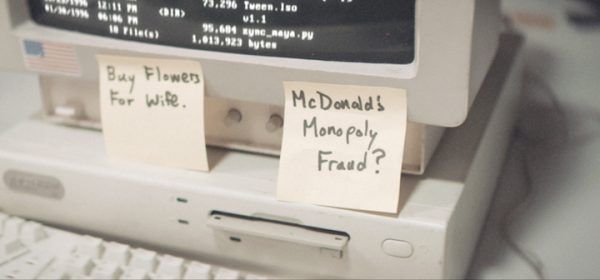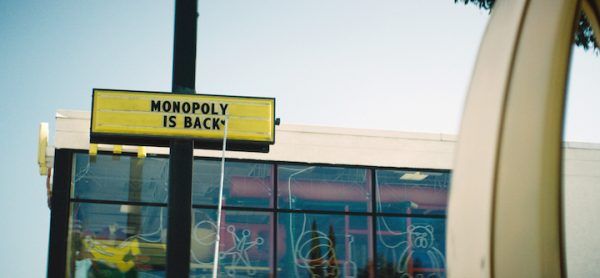This is a review of the first three episodes of HBO's McMillions.
At first glance, James Lee Hernandez and Brian Lazarte's HBO documentary series McMillions seems like it will be a fun true-crime romp. You've got an easy-to-understand crime—people defrauding the McDonald's Monopoly game—and colorful characters like loquacious and gregarious FBI agent Doug Matthews. The direction is slick and stylish, and it seems like it will be a good time to untangle how the mysterious "Uncle Jerry" defrauded this popular contest. However, by the time you reach the end of the third episodes, it's clear that Hernandez and Lazarte aren't really sure how to handle the subject matter, so they just go for maximum dramatic effect. With the heavy amount of dramatization and the need to make it six episodes so that every facet of the case receives some amount of elaboration, McMillions is a sporadically entertaining ride that collapses under its own weight.
In 2001, the FBI office in Jacksonville, Florida got a tip that the popular McDonald's Monopoly game could be the victim of fraud at the hands of a mysterious figure known as "Uncle Jerry." The FBI discovers that the winners are related, and that there's definitely some kind of fraud underway. By working with a small circle of McDonald's higher-ups, the FBI works to uncover how the winning game pieces were stolen and distributed. Their work eventually leads them to not only "Uncle Jerry", but also a crime ring with mob ties that led a surprising amount of devastation in their wake.
Hernandez and Lazarte can never really manage this balance between lighthearted crime caper and harmful scam because their attention always seems to be on how to make the story as entertaining as possible. There are times when this entertaining approach works in their favor, especially when they're talking to the colorful Matthews (and then feel the need to have other talking heads tell us how colorful Matthews is). And at first glance, it seems fairly innocuous. The only victim seems to be the McDonald's Corporation, and if the game was rigged, the money was still going to average folks, so where's the harm?
The "harm" aspect arises in Episode 3, when we meet Gloria Brown, who breaks down how Jerry Columbo, a mobster working with Uncle Jerry, basically used her and people like her to extort funds from the game. The game pieces weren't being benevolently bestowed to average people; Columbo just needed a way to redeem the money, so average people became his marks where they would get stuck with a small cut and the tax burden while Columbo made most of the money.
The most that the directors can make of a figure like Columbo is, "Ah, he was a character but he also had a bit of a dark side," and it's clear by the end of episode three that what Hernandez and Lazarte want most is dramatic effect rather than discovering a larger picture about what this scandal is all about. I won't spoil what happens at the end of episode three, but it's such an ill-conceived cliffhanger that even if I had the final three episodes at my disposal, I may have bailed because of the scene's crassness. Storytellers indicate their priorities, and for Hernandez and Lazarte, their priority is, "Isn't this wild?" which only gets you so far. Eventually, you need some substance, especially if you feel like the story you're telling requires six hours.
What McMillions seems to miss is the question of who gets justice. Perhaps this will come into view in the later episodes (although, again, given the emphasis on entertainment and overly long reenactments, I doubt it), but it's curious that what you see as the "good guys" in this story is the government and a multi-billion dollar corporation working hand-in-hand to protect…the multi-billion dollar corporation. Where's the justice for Gloria Brown? It's not the FBI's territory to worry about a single mother just scraping by and taking what appeared to be, in Brown's words, "a blessing." There's no remedy for systemic injustice, but we can call in the feds to make sure that McDonald's brand isn't associated with fraud.
Maybe McMillions will get there and be about a story that's larger than stolen game pieces, but if it does, it will need to get its tone under control. The first episode hints at a story that will be lighthearted and fun, but that doesn’t gel with further revelations or the breadth of the series. The filmmakers want to have it all with McMillions, but that prevents the docuseries from having focus, which means it only works in fits and starts. Sure, it's entertaining to watch Doug Matthews spin his own legend or learn how the contest was supposed to operate, but what do we do with the Gloria Browns of the world? McMillions doesn’t have a clue.
Rating: C
The docuseries premieres on HBO on February 3, 2020.




